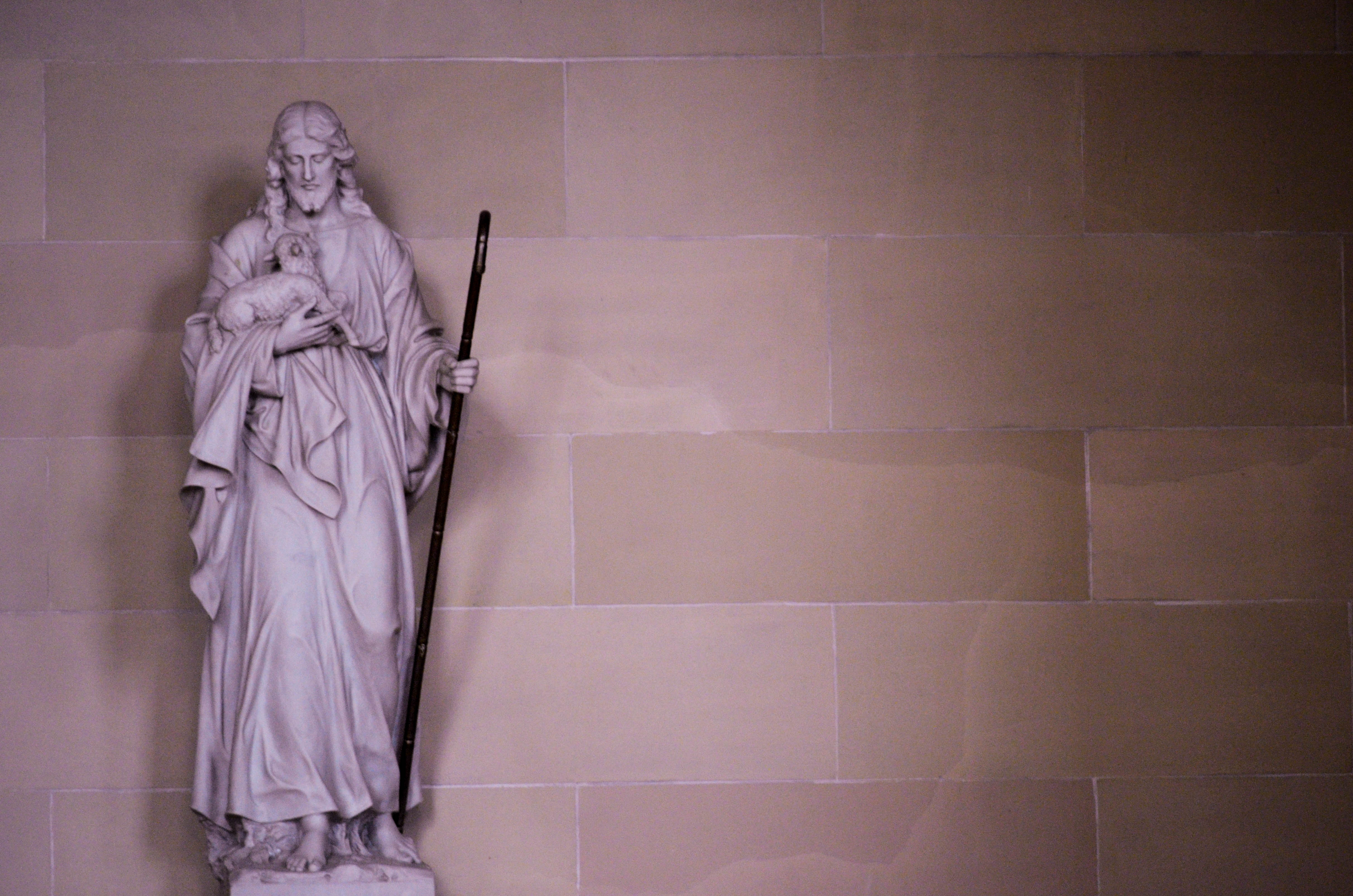I always said I would never take up quilting. That was until I did.
Seeing all those pieces come together can be a rather surreal experience. You cut out all these little triangles and squares, and sometimes it seems like you are cutting them out forever. There is no way these tiny seemingly mismatched piles will ever make a cohesive whole. Then you sit down at your machine and you start sewing these little ¼” seams. This short seam to connect these pieces and that short seam to connect those pieces until the pieces stop being individuals and start creating a pattern. From the many comes one.
And you get really good at ripping those seams out very gently, but believe me, if your foundation pieces aren’t put together correctly the entire project can turn out cockeyed.
Jesus and his followers may not have been quilters, but they knew a little something about masonry. It was true then and it is true now, if you don’t get the foundation laid squarely, the whole house will end up a little cockeyed.
The same exact thing is true for our spiritual lives. If we don’t work daily to keep our foundation square, we don’t offer Jesus anything to build on as we go about our day.
So what do we do to keep our foundation square? Just like cutting out those tiny quilt pieces, it is often a journey back to the basics.
Am I spending time in prayer? Is all my prayer my laundry list of requests for God? Do I take time in prayer to silence my brain and just be present with God? Do I give my heart space to listen to the whisperings of the Holy Spirit?
Am I grounding my days in Scripture? Do I read the writings of the Church Fathers and other trusted sources to guide me in how I am interpreting Scripture? Do I read just to get to the end of the passage or am I taking time to let the words and meaning sink into my heart and soul?
Am I close to the Sacraments? Do I make my weekly obligation and then check the box for the week or do I search out other opportunities to participate in Holy Mass? Do I make regular visits to the confessional to receive God’s grace through the Sacrament of Reconciliation?
Squaring up our foundation doesn’t mean trying to do all of these things at once. (Actually that is a pretty formula for making sure your foundation isn’t square!) But when life is feeling a little out of kilter and cockeyed, doing some soul searching and paying attention to our foundation gives God the space to bring together the little pieces of the quilt of our lives according to His design.
Siempre dije que nunca me dedicaría a hacer cubrecamas (quilts). Hasta que un día lo hice.
Ver todas esas piezas unirse puede ser una experiencia bastante surrealista. Recortar todos los pequeños triángulos y cuadrados a veces parece ser sin fin. No hay forma de que estas pequeños montos aparentemente no coincidentes formen un todo cohesivo. Luego te sientas en tu máquina y comienzas a coser estas pequeñas costuras de medio centímetro. Vas cosiendo y conectando, cosiendo y conectando las piezas hasta que dejen de ser individuales y comiencen a crear un patrón. De los muchos viene uno.
Y te vuelves muy bueno sacando las costuras con mucho cuidado, pero créeme, si las piezas de la base no se ensamblan correctamente, todo el proyecto puede resultar torcido.
Jesús y sus seguidores cosían quilts, pero sabían algo sobre la albañilería. Era cierto entonces y es cierto ahora, si no se colocan los cimientos correctamente, toda la casa terminará un poco torcida.
Exactamente lo mismo es cierto para nuestras vidas espirituales. Si no trabajamos diariamente para mantener nuestros cimientos firmes, no le ofrecemos a Jesús nada sobre lo cual edificar mientras vamos avanzando por el día.
Entonces, ¿qué hacemos para mantener nuestros cimientos cuadrados? Al igual que cortar esas pequeñas piezas de la colcha, a menudo es volver a regresar a lo básico.
¿Estoy pasando tiempo en oración? ¿Es toda mi oración una lista de peticiones para Dios? ¿Tomo tiempo en oración para silenciar mi cerebro y simplemente estar presente con Dios? ¿Le doy espacio a mi corazón para escuchar los susurros del Espíritu Santo?
¿Estoy fundamentando mis días en las Escrituras? ¿Leo los escritos de los Padres de la Iglesia y otras fuentes confiables para guiarme en cómo estoy interpretando las Escrituras? ¿Leo solo para llegar al final del pasaje o me estoy tomando el tiempo para dejar que las palabras y el significado entren mi corazón y mi alma?
¿Me acerco a los Sacramentos? ¿Hago mi obligación semanal y digo “hecho” para la semana, o busco otras oportunidades para participar en la Santa Misa? ¿Hago visitas regulares al confesionario para recibir la gracia de Dios a través del Sacramento de la Reconciliación?
Cuadrar nuestros cimientos no significa tratar de hacer todas estas cosas a la vez. (¡En realidad, esa es una fórmula bonita para asegurarse de que los cimientos no sean cuadrados!) Pero cuando la vida se siente un poco fuera de lugar y torcida, hacer un examen de conciencia y prestar atención a nuestro cimiento le da a Dios el espacio para reunir a los pequeños pedazos de la cubrecama de nuestras vidas de acuerdo a Su diseño.
 Sheryl is happy to be the number 1 cheerleader and supporter for her husband, Tom who is a candidate for the Permanent Diaconate in the Diocese of Kalamazoo. They are so grateful for the opportunity to grow together in this process. Sheryl’s day job is serving her community as the principal for St. Therese Catholic School in Wayland, Michigan. Since every time she thinks she gets life all figured out, she realizes just how far she has to go, St. Rita of Cascia is her go-to Saint for intercession and help. Home includes Carlyn, a very, very goofy Golden Retriever and Lucy, our not-so-little rescue puppy.
Sheryl is happy to be the number 1 cheerleader and supporter for her husband, Tom who is a candidate for the Permanent Diaconate in the Diocese of Kalamazoo. They are so grateful for the opportunity to grow together in this process. Sheryl’s day job is serving her community as the principal for St. Therese Catholic School in Wayland, Michigan. Since every time she thinks she gets life all figured out, she realizes just how far she has to go, St. Rita of Cascia is her go-to Saint for intercession and help. Home includes Carlyn, a very, very goofy Golden Retriever and Lucy, our not-so-little rescue puppy.
Feature Image Credit: Olga Ferina, unsplash.com/photos/F-byi_8ekJc











